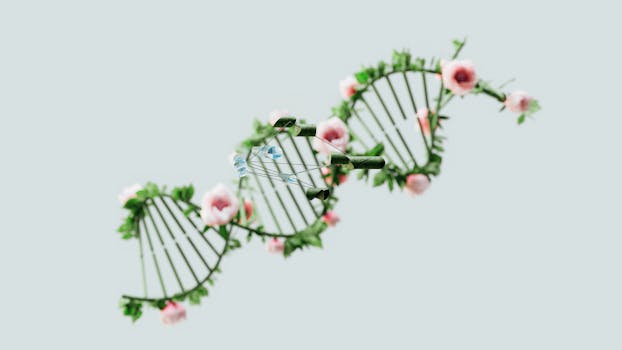
The Role of Genetics in Human Health and Disease
Introduction to Genetics and Human Health

Genetics play a crucial role in human health and disease. The role of genetics in human health and disease is a complex and multifaceted field that has gained significant attention in recent years. Our genetic makeup determines our susceptibility to certain diseases, and understanding the genetic basis of diseases can help us develop effective treatments and prevention strategies. In this article, we will explore the role of genetics in human health and disease, and discuss the latest advances in genetic research and their implications for human health.
Genetic Basis of Disease

Diseases can be caused by a combination of genetic and environmental factors. Genetic factors can include inherited mutations or variations in genes that affect the function of proteins, cells, or tissues. Environmental factors, such as diet, lifestyle, and exposure to toxins, can also contribute to the development of diseases. The genetic basis of disease is often complex, involving multiple genes and interactions between genes and environmental factors.
Some diseases are caused by a single genetic mutation, while others are the result of multiple genetic and environmental factors. For example, sickle cell anemia is a genetic disorder caused by a mutation in the HBB gene, while heart disease is a complex disorder that involves multiple genetic and environmental factors, including diet, lifestyle, and family history.
Genetic Testing and Diagnosis

Genetic testing can be used to diagnose genetic disorders and identify individuals who are at risk of developing certain diseases. There are several types of genetic tests, including molecular tests, chromosomal tests, and biochemical tests. Molecular tests involve analyzing DNA or RNA to identify genetic mutations or variations, while chromosomal tests involve analyzing the structure and number of chromosomes.
Genetic testing can be used to diagnose genetic disorders, such as cystic fibrosis, sickle cell anemia, and Huntington’s disease. It can also be used to identify individuals who are at risk of developing certain diseases, such as breast cancer, ovarian cancer, and colon cancer. However, genetic testing is not without its limitations and risks, and it is essential to carefully consider the potential benefits and risks before undergoing genetic testing.
Genetic Research and Advances

Genetic research has made significant advances in recent years, and our understanding of the genetic basis of disease has improved dramatically. The development of new technologies, such as next-generation sequencing and CRISPR-Cas9 gene editing, has enabled researchers to study the genetic basis of disease in greater detail and develop new treatments and therapies.
For example, gene therapy has been used to treat genetic disorders, such as severe combined immunodeficiency (SCID) and Leber’s congenital amaurosis. Gene editing has also been used to develop new treatments for complex diseases, such as cancer and HIV.
Conclusion

In conclusion, the role of genetics in human health and disease is complex and multifaceted. Understanding the genetic basis of disease can help us develop effective treatments and prevention strategies, and genetic research has made significant advances in recent years. However, genetic testing and diagnosis are not without their limitations and risks, and it is essential to carefully consider the potential benefits and risks before undergoing genetic testing. As our understanding of the genetic basis of disease continues to improve, we can expect to see new and innovative treatments and therapies emerge, and our ability to prevent and treat diseases will continue to improve.



